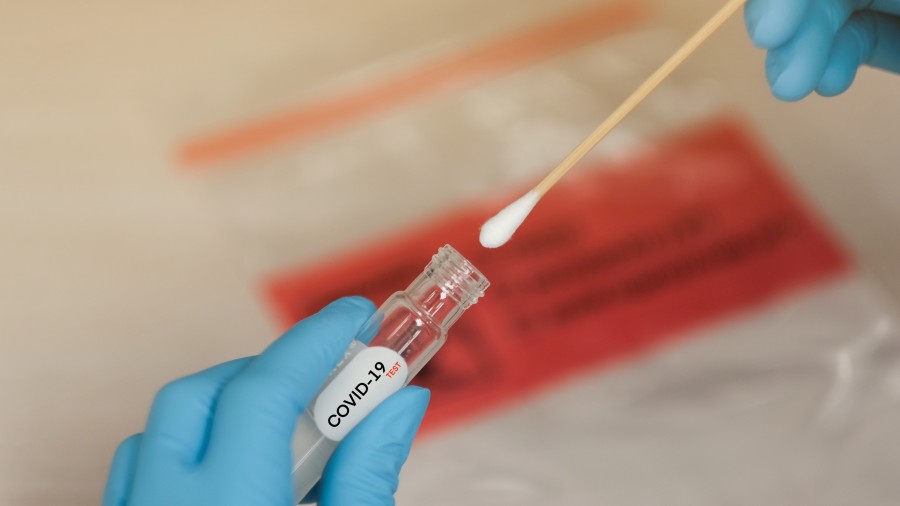A home-grown paper strip diagnostic test kit for Covid-19 that could cut the waiting time for results by several hours will be available in New Delhi by the first week of December and “shortly thereafter” in Calcutta.
Two private entities that have commercialised the concept developed in a government laboratory made the announcement on Thursday.
The paper strip-based test, developed by scientists at the Institute of Genomics and Integrative Biology in New Delhi, is expected to scale up Covid-19 diagnosis as it eliminates an expensive sophisticated tool used in the standard quantitative RT-PCR test.
The institute has named the testing technology Feluda after the iconic Bengali sleuth created by Satyajit Ray and brought to life by Soumitra Chattopadhyay.
Tata Medical and Diagnostics (Tata MD), the health care venture of the Tata group, has collaborated with Apollo Hospitals for the commercial roll-out of the new mode of testing, called TataMD CHECK.
The test results should be available to a suspected patient within two hours, an Apollo Hospitals spokesperson said.
The result of a conventional RT-PCR test is available within six hours of testing at many hospitals in Calcutta. But a private laboratory usually takes 24 to 48 hours to deliver the result.
The paper strip test will need nasal and throat swab samples like they are needed in RT-PCR tests.
Both diagnostic strategies rely on looking for genetic signatures of the Covid-19 virus after an “amplification process” that multiplies traces of viral genetic material in the swabs of patients.
While the standard RT-PCR test relies on a machine that costs around Rs 20 lakh, the Feluda technology combines an enzyme that works like a molecular scissor with a paper strip to detect the amplified genetic material without the need for that expensive machine, according to IGIB scientists.
“It should take no more than 60 minutes from gene amplification to test read-out,” Debajyoti Chakraborty, an IGIB scientist who developed the test in collaboration with his colleague Souvik Maiti, said.
Chakraborty said the paper strip test would expand the number of Covid-19 diagnostic facilities and reduce the turnaround time from submission of a sample to the release of the result.
“The paper-strip technology is expected to help deliver results faster and higher throughput of testing volumes as there are no minimum batch size limitations,” an official of Tata MD said.
The RT-PCR test involves batch processing, which means a fixed lot of samples has to be fed into a reader at one go.
While the IGIB has already transferred the technology to the Tata group on a non-exclusive basis, the institute, a unit of India’s Council of Scientific and Industrial Research, has received enquiries from other potential manufacturers.
“Apollo Hospitals, along with its subsidiary Apollo Diagnostics, will offer the Tata MD CHECK testing in the National Capital Region from the first week of December 2020 and shortly thereafter it will be rolled out across all major centres,” the group said in an official statement.
“We are happy to further the cause of AatmaNirbhar Bharat in providing the launch pad for adoption of this indigenously developed testing,” Sangita Reddy, the joint managing director of Apollo Hospitals, said.
The cost of the paper strip test in each state will be fixed according to the caps placed by the state governments. In Calcutta, the state government has capped the cost of RT-PCR tests at Rs 1,500 for private hospitals.
Doctors said any reduction in the waiting time was welcome.
“There are sophisticated testing techniques like GeneXpert (that uses imported kits to look for genetic signatures of the Covid-19 virus after an amplification process) which produce results faster than the RT-PCR technique. But an indigenous technology will come at a cheaper price and can be the ‘test of choice’,” a city-based pulmonologist and intensive care specialist said.











